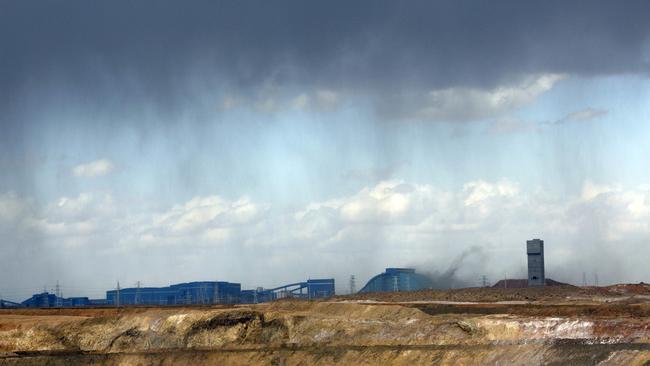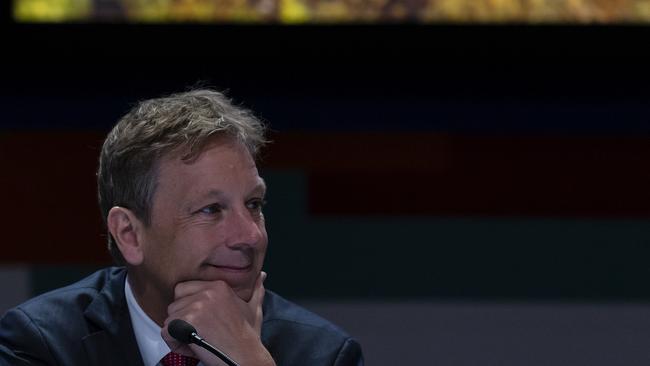Oyu Tolgoi wrangling an early test for new Rio Tinto CEO Jakob Stausholm
New Rio Tinto boss Jakob Stausholm is facing his first major test as the company’s chief executive.

New Rio Tinto boss Jakob Stausholm faces the first major test of his tenure as Rio chief executive, with the government of Mongolia renewing threats to halt the expansion of its Oyu Tolgoi copper mine if Rio does not improve commercial returns to the government.
The threat was disclosed in the latest market announcement of Rio’s 51 per cent subsidiary Turquoise Hill on Monday night, with the company - which is at loggerheads with Rio over how it will fund its share of the blown out budget for the expansion - saying the Mongolian government was not happy with the revised budget for the underground expansion.
Rio formally crystalised the Oyu Tolgoi budget blowout in mid-December, saying the the underground operation at the giant mine will be delivered by October 2022, a near two-year delay from the original timeline.
The underground expansion, originally tipped to cost $US5.3bn ($7bn), will now cost $US6.75bn, or over 27 per cent more than when the project was approved in 2016.
On Monday Turquoise Hill told shareholders the Mongolian government, which owns 34 per cent of the mine, had said it was not happy with Rio’s revised estimates for the underground expansion, and could seek to renegotiate the terms of the 2015 deal allowing the expansion to go ahead, and demand a bigger cut of royalties and tax payments.
“The government of Mongolia has advised Rio Tinto that it is dissatisfied with the results of the definitive estimate… and is concerned that the significant increase in the development costs of the Oyu Tolgoi project has eroded the economic benefits it anticipated to receive therefrom,” Turquoise Hill said.

“The Government of Mongolia has indicated that if the Oyu Tolgoi project is not economically beneficial to the country, it would be necessary to review and evaluate whether it can proceed.”
Turquoise Hill said the Mongolian government was seeking a “comprehensive solution” that addressed both the funding dispute between Rio and Turquoise Hill, as wells as “economic and social issues of importance to Mongolia, such as water usage, tax payments, and social issues related to employees”.
The 2015 agreement signed between then Rio boss Jean Sebastien Jaques and former Mongolian Prime Minister Chimediin Saikhanbileg has been a festering political issue since it was signed, and has been the subject of regular threats of termination.
It is believed the Mongolian government is now seeking a complete renegotiation of its terms, however.
A spokesman for Rio Tinto said the company and its partners had already investment more than $US11bn in Oyu Tolgoi, but “remained open” to improving the agreement covering the underground development to improve the return to all shareholders.
“Oyu Tolgoi LLC, Rio Tinto and Turquoise Hill Resources are committed to working with the Government of Mongolia to ensure that OT remains on track for the next phase of its underground development, which unlocks the most valuable part of the project, and are continuing to evaluate all viable alternatives for a successful resolution of the outstanding issues with the Government of Mongolia,” he said.
Morgan Stanly analyst Alain Gabriel told clients in a note that the Mongolian government threat increased the risk around the timing and budget of the underground expansion.
“Any delays in obtaining approvals beyond 1H 2021 may result in further value erosion of the project, which we expect to ramp-up in Oct-2022,” he said.
“A potential renegotiation of the mining agreement could result in some value leakage as the government seeks to accelerate its access to cash flows via a potential change in ownership structure and/or royalty level.”
Rio shares were down 14c to $122.26 at midday AEDT.





To join the conversation, please log in. Don't have an account? Register
Join the conversation, you are commenting as Logout